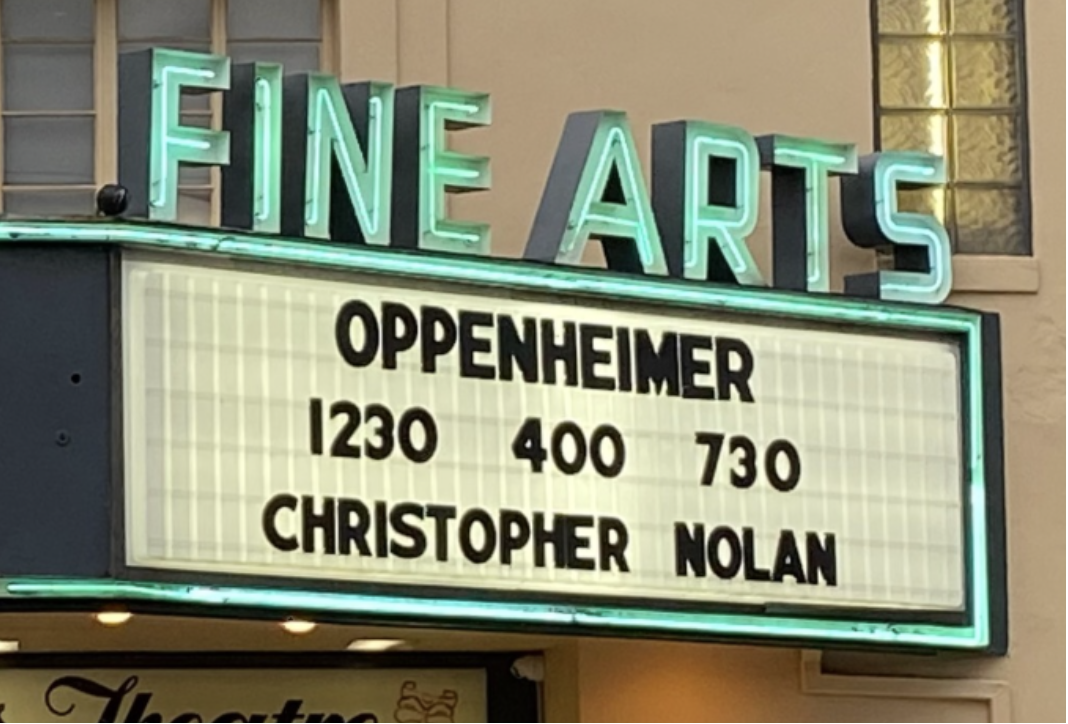This article is part of a head-to-head series. Read the counterargument by Claire Schuppel.
“Barbie” and “Oppenheimer,” collectively known as “Barbenheimer,” are two movies that have taken the world of entertainment by storm. However, the most unexpected phenomenon of summer blockbusters has come and gone with both films getting their respective time in the spotlight.
As someone who saw both in the theater opening weekend, I can safely say that they are equally wonderful movies from two different directors that are masters of the craft; Greta Gerwig with “Barbie” and Christopher Nolan with “Oppenheimer.” Given the nature of the two films, they are difficult to compare directly. The choice between which of the two is “better” truly relies on the decision between a near-perfect fantasy comedy or a near-perfect biographical drama. However, I will toss my hat in the ring and attempt to definitively claim a winner between them. Noting this, I believe “Oppenheimer” to be a better work of art due to its superiority in the single aspect that all films have in common: the directing.
Over the years, Christopher Nolan has gained himself quite the reputation in the directing landscape. Due to his films such as “Memento,” “Inception” and “Tenet,” Nolan is well known for defying traditions of storytelling and filmmaking. Whether telling the story of dreams within dreams, of incomprehensible science fiction technology or even of putting a movie’s scenes in reverse order, his films are almost always pushing the envelope of what audiences think a movie should be. With “Oppenheimer,” Nolan follows the tradition of not following traditions.

Telling an ambitiously non-linear story, the film tracks J. Robert Oppenheimer throughout various periods in his life: being approached for the Manhattan Project, constructing the world’s first nuclear bomb and facing the various consequences of his actions. Going even further, Nolan intertwines various layers of the many stories he tells in the film. Oppenheimer’s life is contrasted with that of his political opponents; black-and-white scenes are contrasted with those in color; and the world of reality is contrasted with the psychological world of the horrors that weigh on the spirits of a man who created a weapon of mass destruction. The weaving of all these stories together can become confusing at times, but a thorough understanding of the events is not required for an engaging viewing of this movie. The important facts of the narrative are plain to see. Oppenheimer made that bomb. Now he has to deal with the aftermath.
Building off of the narrative, the production and filmmaking of this film culminate to create a truly unforgettable feeling of suspense. “Oppenheimer” is the first movie I’ve ever actively wanted to win the Oscar for Best Sound Design as a result of the film’s use of subtle sound effects throughout the film– a faint radioactive crackle here, the ticking of an ominous clock there, total silence when the first bomb is dropped. Speaking of sound, the musical score composed by Ludwig Göransson (of “The Mandalorian” fame) is impeccable and engrossing, amplifying the emotion of every scene to a drastically higher level.
At the same time, the visuals can be striking. The film’s three-hour runtime does not drag in the slightest thanks to its use of quick editing when needed, while also slowing down when the situation calls for it. When Oppenheimer is assembling the bomb, time goes by quickly. When he’s being interrogated about his involvement with it, time seems to stop. The pace slows down drastically at times, but it never feels boring or like the movie wastes the watcher’s time. Instead, the slowness serves to make the scenes more intimate as the audience is allowed to feel every development so thoroughly and see how it affects the characters in real time.
To reiterate, “Barbie” and “Oppenheimer” are both spectacular films in their own right. The fact that these two polar opposite films came out on the same day and both turned out so well is nothing short of phenomenal, and they should be seen by anyone looking for a good film to watch. Due to their differences in tone and story, comparing the two is a classic case of comparing apples to oranges. However, from a perspective of artistry and filmmaking, “Oppenheimer” reigns supreme.



